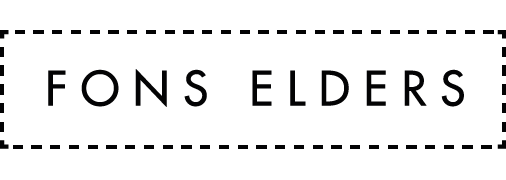Letter to Noam Chomsky
Noam Chomsky 90th birthday
by
fons elders & inspyr media
Dear Noam,
My first encounter with you in 1970 was also the first stop in a journey around the world to meet philosophers for a TV-project in which you participated with Michel Foucault.* What struck me most during the journey around the globe, were the profound differences between cultures. Each country had its own ‘collective evidence’.[1] The sheer impossibility of mutual understanding triggered my imagination: I wanted to discover ’how’ to deal with the abyss between cultures.
Ouroboros Quo Vadis? circles through eight perceptions with their intrinsic connections: from ‘unknown territories’, ‘creative imagination’ and ‘human condition’ toward a specific ‘space-time’ dimension, and from there to ‘dreams and drugs’, ‘paradise’, ‘pure beauty’, and ‘ecological consciousness’. The eight subjects belong to the original Ouroboros Quo Vadis?
What happens with the numbers 5 till 8, depends on the content of 1 till 4. My worldview rejects the absolute time and space of Isaac Newton. It introduces ‘ecological consciousness’ as the alpha and omega of a worldview for the 21st century, i.e. third millennium.
Ouroboros symbolizes the link with nature that Western civilization lost.
Noam, I believe this Ouroboros Quo Vadis? presents your perceptions!
Travelling with your linguistics as my guide through (1) unknown territories
I didn’t discover any sentence with just one meaning. There is always ‘space’ around a sentence as also in music. Your linguistics shows the entrance toward deeper layers, including the discovery that the word ‘deeper’ becomes itself a question mark, and therefore more real, not less.
Your anarcho-syndicalism fascinates me, due to my character, WW II and the sixties. My first lecture in 1965 at the Amsterdam Film academy dealt with a dialogue between a prostitute and a philosopher in Vivre Sa Vie by Jean-Luc Godard. Students were eager to discover a ‘reality’, different from the one of their parents, church and school education.
But when I tried to explain your anarcho-syndicalism to my peasant-neighbor, I didn’t succeed. His answers were straightforward: The ram goes ahead, and the sheep do follow. That’s the natural order! I told my friends: it’s easier to talk to philosophers about anarchism than to a peasant.
Till on a sunny Sunday, the dog of a friend escaped into the meadow next to our farm where fifteen sheep and many lambs were grazing. Running behind the dog, something amazing happened. Instead of fleeing in every possible direction like sheep in panic do, the mothers encircled the dog, with the lambs at their backs. The dog whined with fear, afraid of the array of sheep-heads. Finally, he escaped running for his life.
Is there a correspondence between the deeper nature of a sheep, and the deeper nature of humans, after becoming mothers and fathers?
Let us go to (2) creative imagination with its capacity for self-reflection, the highest human faculty: the abyss of human existence: sublime and dangerous.
Pico della Mirandola writes in Oration on the dignity of Man: ‘we are without form, in order to create our form’ [1494]. The possibility to imagine realities or to construct ‘identities’, is the source of: religions and sciences; art and technologies; truth and lies. However, truth and lie share the same level only semantically, not in their origin. The lie needs the truth, not vice versa. If there is someone who excels in uncovering lies, it is you.
From (2) creative imagination to (3) human condition is just one step. Wondering about the question from where we come and to where we go, is characteristic for our human nature. Here starts the battlefield. In your own words: “…the need for creative work under one’s own control is a fundamental property of human nature. We can investigate whether that’s true but we can’t investigate the question or the claim that there is no human nature, because it is incoherent. So, we can ask, well, what exactly is human nature, and that’s a serious topic of inquiry – from elements of history, from experience even by now from experimentation. But we can’t deny the existence of human nature.”[2]
Creative imagination draws its inspiration from a multi-layered consciousness that reaches to the bottom of reality. How humans experience ‘the bottom of reality’ depends on their (4) space-time perceptions. Cultures and individuals differ from each other to the extent that their space-time doesn’t match.
The animistic worldview of ancient cultures until modern times like e.g. the Japanese one, experiences outer space and human’s inner space as one ongoing reality. Actually, that is not really different from the vision in Wholeness and its Implicate Order by David Bohm.
Compare this quite universal perception with the absolute time and space definitions by Isaac Newton: I. Absolute, true and mathematical time, of itself, and from its own nature, flows equably without relation to anything external, and by another name is called duration; II. Absolute space, in its own nature, without relation to anything external, remains always similar and immovable.[3]
The Newtonian World View severed the umbilical cord between nature and culture. The awareness of time broke free from nature, from the body and from space. An infinitely future time took possession of the European mind: Prometheus breaks away, boundless and timeless. Three hundred years after the Newtonian myth, Earth & Cosmos respond with a climate change.
Your space-time vision is global; whatever happens, happens simultaneously.
Your question: Who owns the world? gets an answer in (5) dreams and drugs.
Your longing for a profound transformation: the need for creative work, for creative inquiry, for free creation without the arbitrary limiting effect of coercive institutions…a decent society should maximize the possibilities for this fundamental human characteristic to be realized.
Your vision is like fresh air. It is your response to David Hume, the ‘astute observer’, due to his lucid and compelling statement: the easiness by which the many are governed by the few. Your dreams are connected with your discoveries in (1) unknown territories.
You told me that you grew up as a Zionist youth leader in the1940s: “In those days when I was a Zionist youth leader I happened to be opposed to a Jewish state. I don’t think that there should be Christian states or Islamic states or Jewish states… I was part of, and an active member of that part of the Zionist movement which opposed the Jewish state but wanted a society based upon Arab-Jewish working class cooperation which I don‘t think was an idle dream…So what’s called Zionism changed…What Zionism has become …is a form of state worship…it’s reminiscent of some of the ugliest days of Stalinism where you support the state no matter what its crimes are and no matter how violent it is. Then denounce critics of state violence as being anti-Semitic…Since the 70s I have written many times that the people who call themselves supporters of Israel are in reality supporters of its moral degeneration and probably its ultimate destruction.”[4]
My creative imagination got a boost during a recent travel in Iran. I described the experience with the Iranian people as Paradise. Solidarity is perhaps the right corollary for your creative imagination. Your numerous lectures, many on YouTube, have stimulated public opinion, and notably the younger generations, to understand their position in our top-down societies. From there it is a logical step forward to start a network of anarcho-syndicalist organizations. Syndicalist organizations could become a home for millions of workers in all kinds of trade, including skilled youngsters in today’s societies without any organizational support.
ICT as the technological tool of a 21st anarcho-syndicalism, locally and globally.
(7) Pure Beauty, in my worldview it is an innate desire of the human condition, in your worldview identical with Justice.
How you define Justice, has all the characteristics of Pure Beauty.
Karl Popper once said to me: freedom is more important than happiness. I say: Justice is more important than freedom, because it embodies Equality and Freedom. Equality is the foundation of any democracy in which citizens are equal before the law. And the answer to the question, why should there be democracy? is genetic. Because all humans share “an unbroken material connection between every human alive today and every one of our ancestors – even to the very origin of living matter, to the very first primordial cell”. [5]
Humans need Freedom to realize Pindar’s saying: become who you are.
Equality deals with our social space; freedom with our social and individual space. Together they are our collective ‘Quo Vadis?… where are you going?
Noam, we are entering the mouth and tail of (8) Ouroboros’ ecological consciousness: It prevailed in the past, but our modern culture has lost it to such a degree that we are at the threshold of the greatest catastrophe possible.
In your own words: Our federal government leading a race to destruction. What does this tell about our society and our values… there is no time to lose.
I remember you once said:
If I had lived in former times, one would have called me a prophet!
Your May 2018 lecture on YouTube is the message of a Jewish prophet.
The original teachings of Judaism, Christianity and Islam considered JUSTICE as their core value. In today’s world, Capitalism is centerstage.
Its iron law: the law of unequal development.
Stay on the scene, as long as possible!
I’d hate that day when I hear about Noam passing away, I’m sure I’d feel like I lost some of my soul and humanity in the process. Ali Al-Mahdi May 2018
Accepting the way
It is and is not and both
And not both, It is.[6]
Congratulations on your 90th birthday. It’s a great day!
Fons
Postscript
Scasey1960
How is it that Chomsky is a lone voice on so many issues?
Poonoi1968
Humanity is acting like a deer frozen in the headlights of incoming traffic.
Before the start of the debate, from left to right: Michel Foucault – Fons Elders – Noam Chomsky –
[1] http://www.fonselders.eu/projects/travels/usa-japan-india/
[2] Fons Elders Islam Unknown, The World according to Noam Chomsky: How It Is and Could Be.
Publisher Elders Special Productions BV, Amsterdam, 2013, p.174
[3] [1972], Philosophiae Naturalis Principia Mathematica, third edition, with Variant Readings (in two volumes), edited by Alexandre Koyré, I. Bernard Cohen, and Anne Whitman, Cambridge, MA; Harvard University Press
[4] Fons Elders Islam Unknown, The World according to Noam Chomsky: How It Is and Could Be.
Publisher Elders Special Productions BV, Amsterdam, 2013, p. 165-6
[5] Albert Hofmann LSD My Problem Child – Insights / Outlooks tr. Jonathan Ott ed. Amanda Feilding Beckley Foundation Press Oxford University Press 2013, 177
[6] http://www.fonselders.eu/haiku/23

